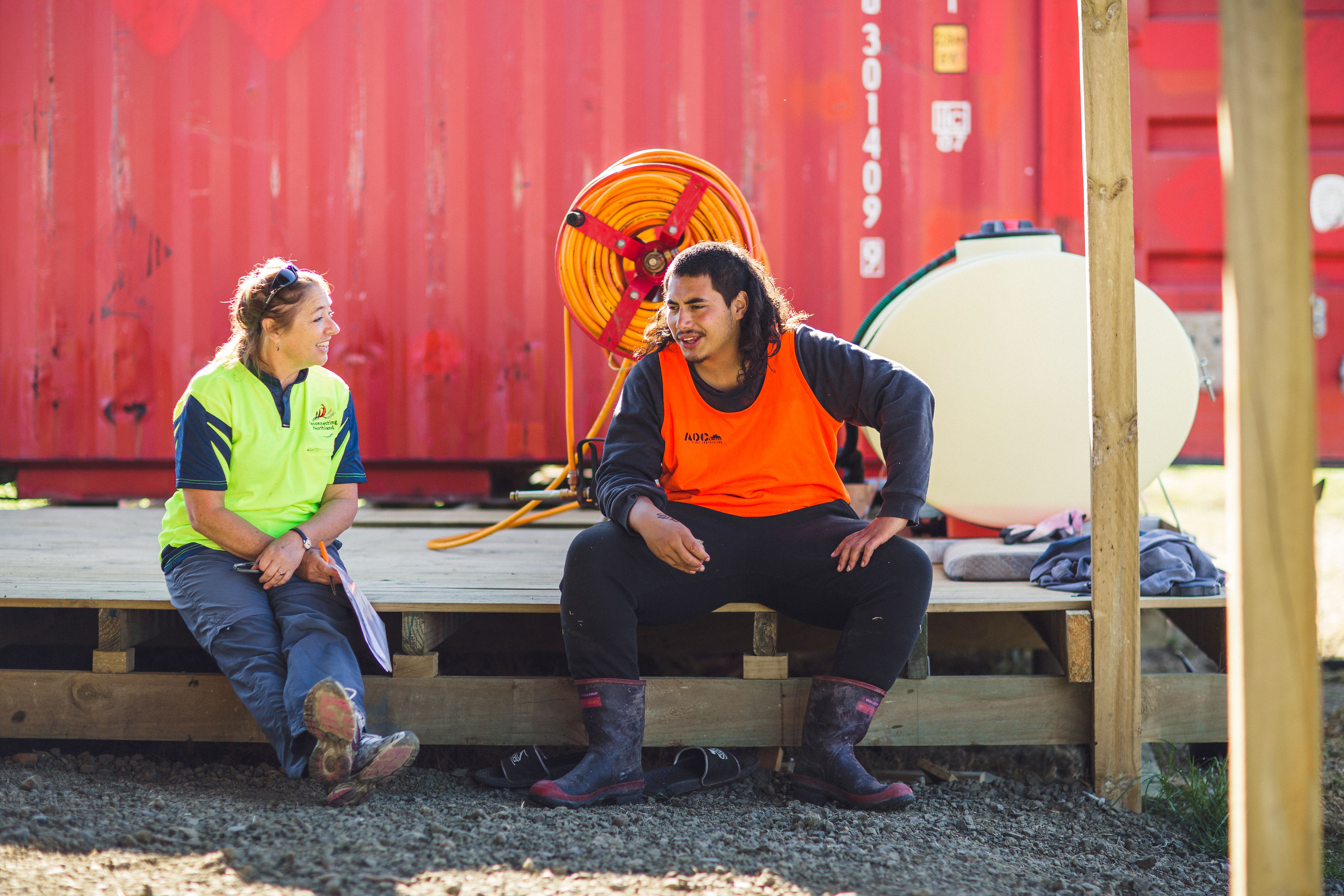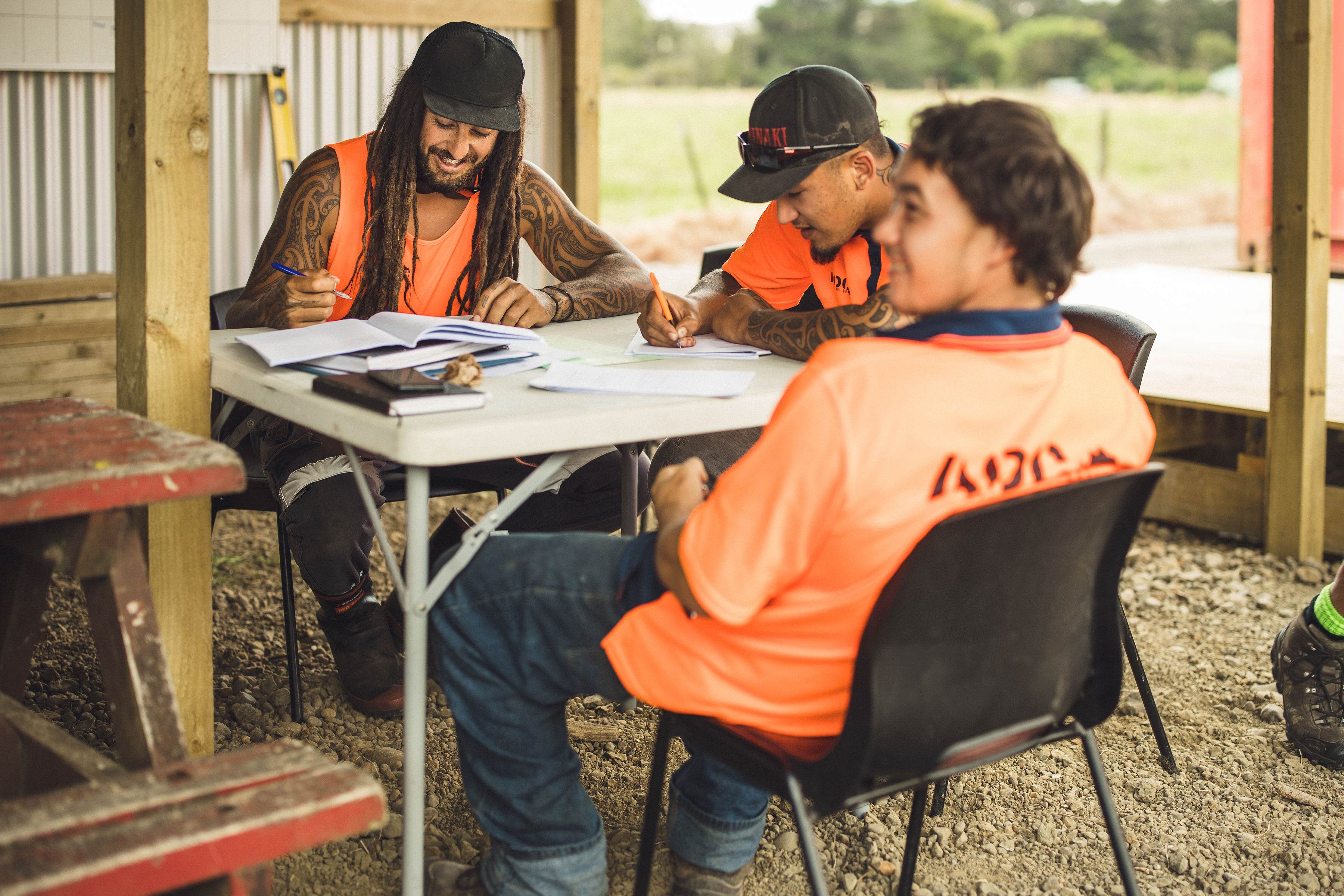
The He Ripo Kau Workforce Training and Development Programme is designed to ensure participants are more qualified and skilled than when they started, but it also brings something deeper: empowerment, confidence, and independence.
It sits within the He Ripo Kau (HRK) Clean Clear Water Project, and all of those employed within the Provincial Growth Fund project are enrolled in the workplace training programme, including the Training & Development Coordinator herself. The training content is based on skills needed for the work and individual participants’ career plans.
The overarching objective is to develop the existing capability of the workforce in their current roles and responsibilities and encourage participants’ beliefs in their own abilities, while expanding their employment prospects via a growing kete of core skills. Another essential element of the work is to create conditions that expose people to new experiences that resonate with them.
Aligning strongly with Reconnecting Northland’s values and vision – commitment, courage, compassion, creativity, and curiosity – the programme involves three interrelating streams of training: on-the-job training, mentoring, and the formal delivery of knowledge and skills.
The external training, which equips participants with everything from driving licences to certificates in health and safety, first aid, fencing, safe chemical use, and the use of quad bikes and chainsaws, is delivered by a range of nationally recognised training providers, including Red Cross, NorthTec, Training Ventures, and Building Safer Communities. Other providers are sought depending on the individual participant’s needs and career interests.

The crew have been attending a series of workshops on native plant identification and plant information with local expert, Paula Hohua, but her sessions offer more than just content. Paula is a Whirinaki local and from the same hapū and marae as many of the participants. Being from, living and working in Whirinaki, Paula is a great example that you don't have to leave the valley to be successful. Along with the training she provides, she also shares her own work history and how she came to work in the sustainable environmental sector and encourages the group to reflect on the work they are doing and why it is important to them.
The soft-skill set possesses other benefits, too, particularly when it comes to relationship building and landholder interactions. This is a crucial aspect of ecological project management, one that is not readily attained through theory-based training – and the coaching provided by Project Manager Te Maapi Simich-Pene in this area adds significantly to the participants’ long-term career prospects.
Since joining in January 2021, one participant is already on track toward a team leadership position after demonstrating his commitment to the project and eagerness to develop his skills and experience further. Leading by example having already obtained multiple certificates, he’s identified further qualifications he’s eager to gain to continue to build his career.
As part of the PGF funding requirements all participants create and regularly update a Career Plan. This document is essential as it drives the training programme by enabling the participants to identify the training they each need to achieve the career goals they have self-identified.
The crew are also now embarking on Controlled Substance Licensing (CSL) certification which is a requirement to take on new contract offered to a number of the participants to complete pest control work on the Kōkako Sanctuary in the Waimā Forest. While the CSL was not initially included in the Training and Development Programme, this additional licence opens up an exciting new opportunity for those involved and is subsequently an important step towards New Zealand’s Predator Free 2050 efforts.
“If participants leave the programme keen to continue learning and with a belief in their ability to build new skills as the need arises, I would consider the programme a success,”

